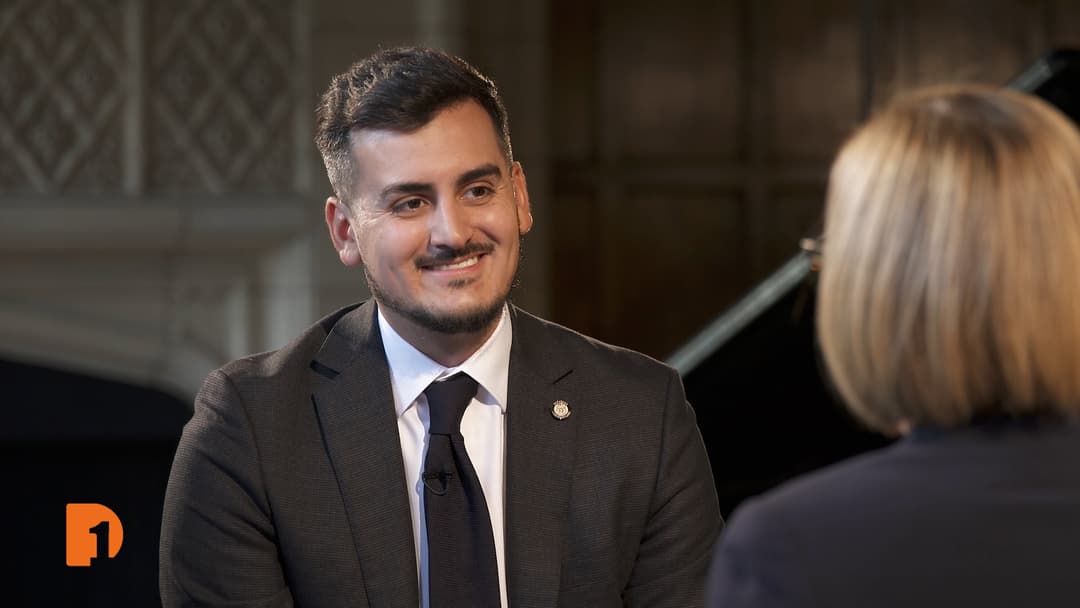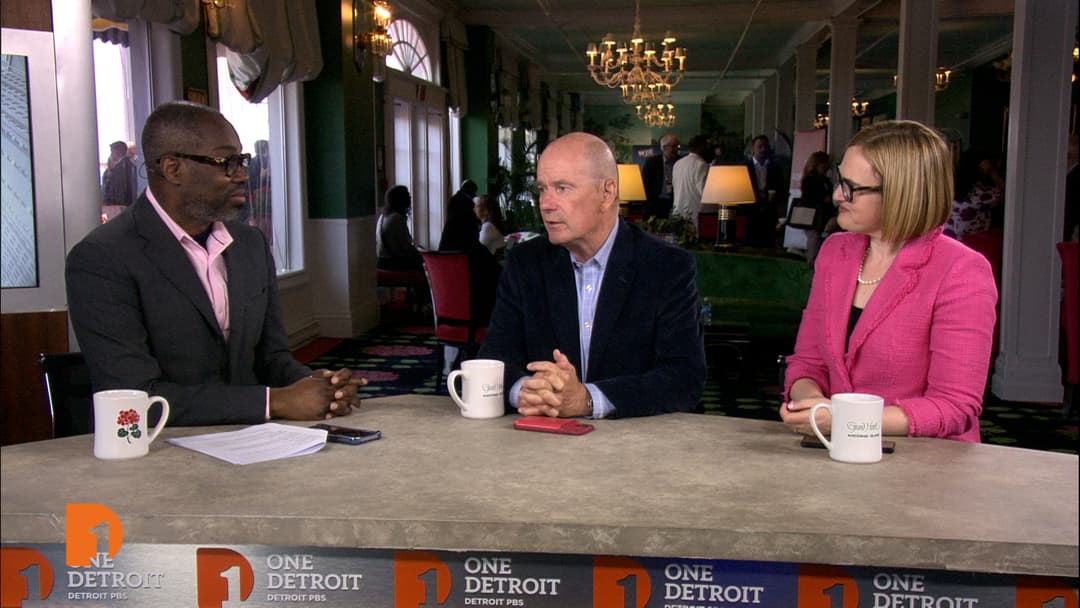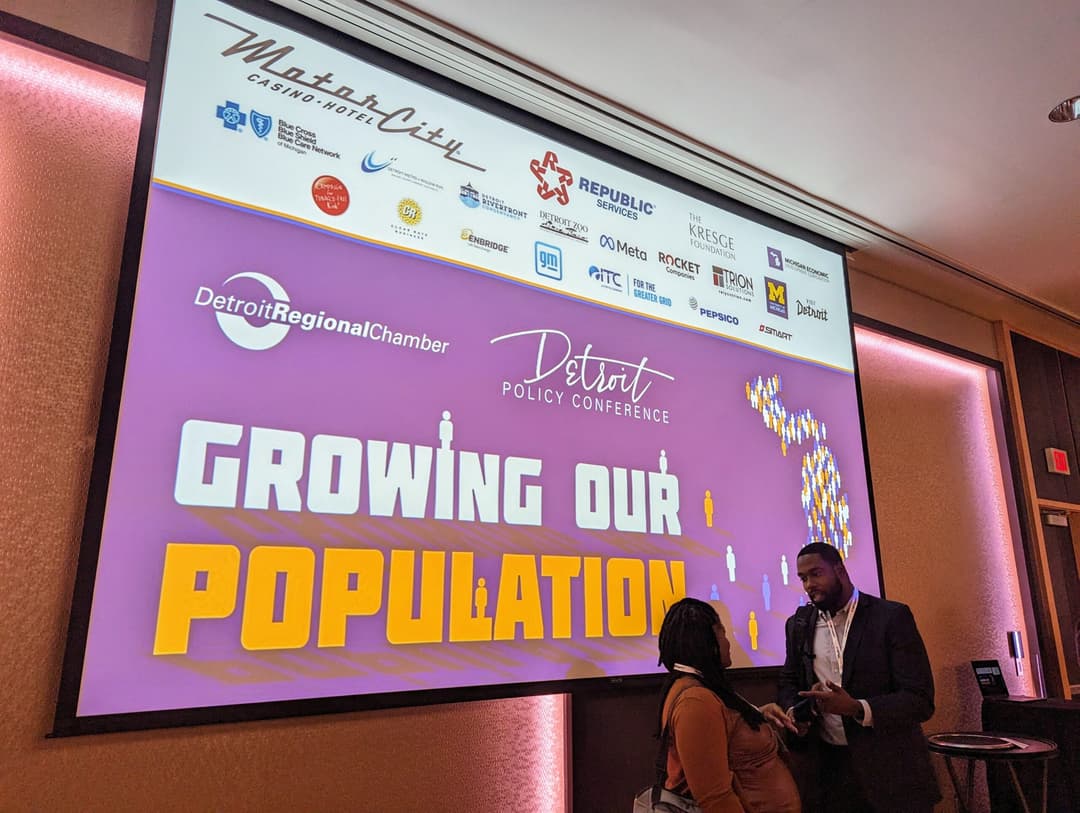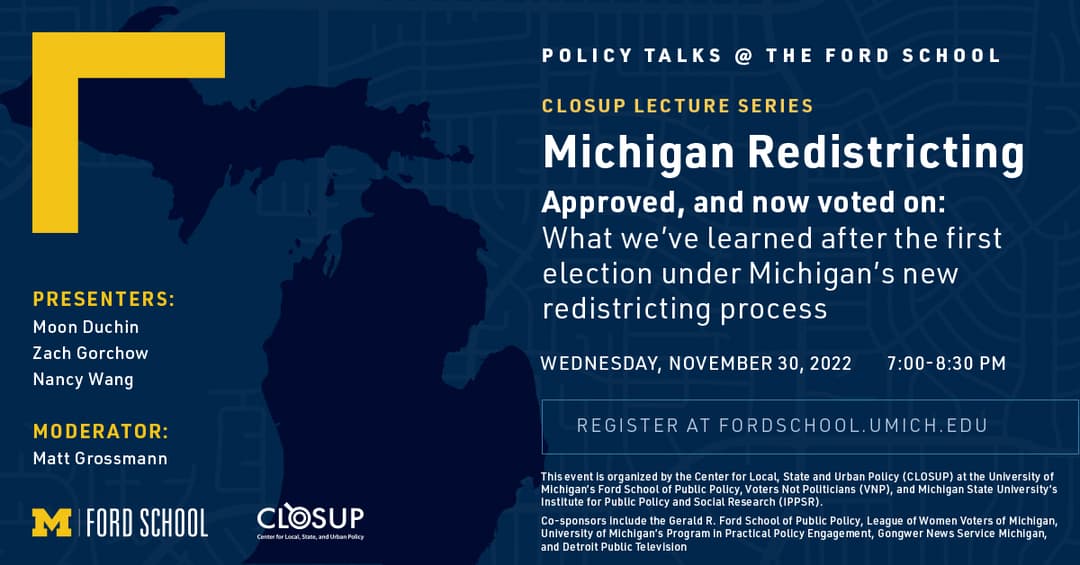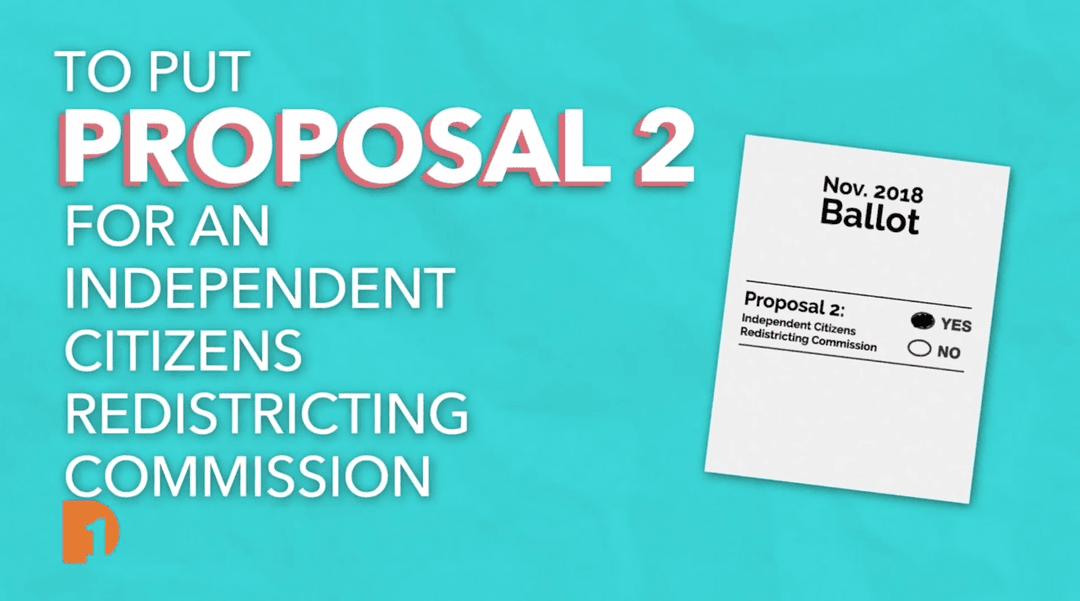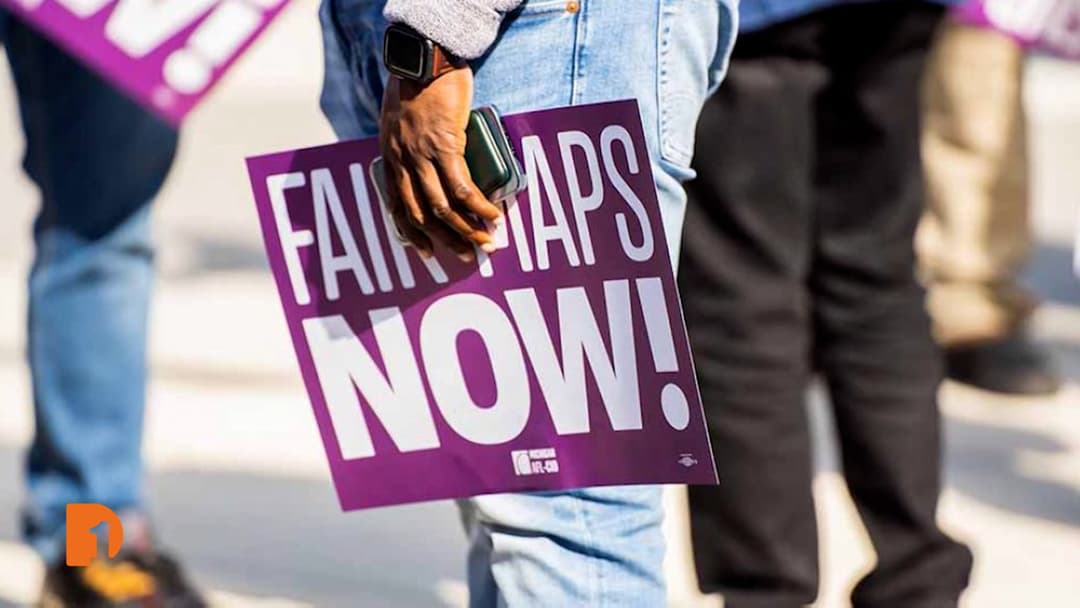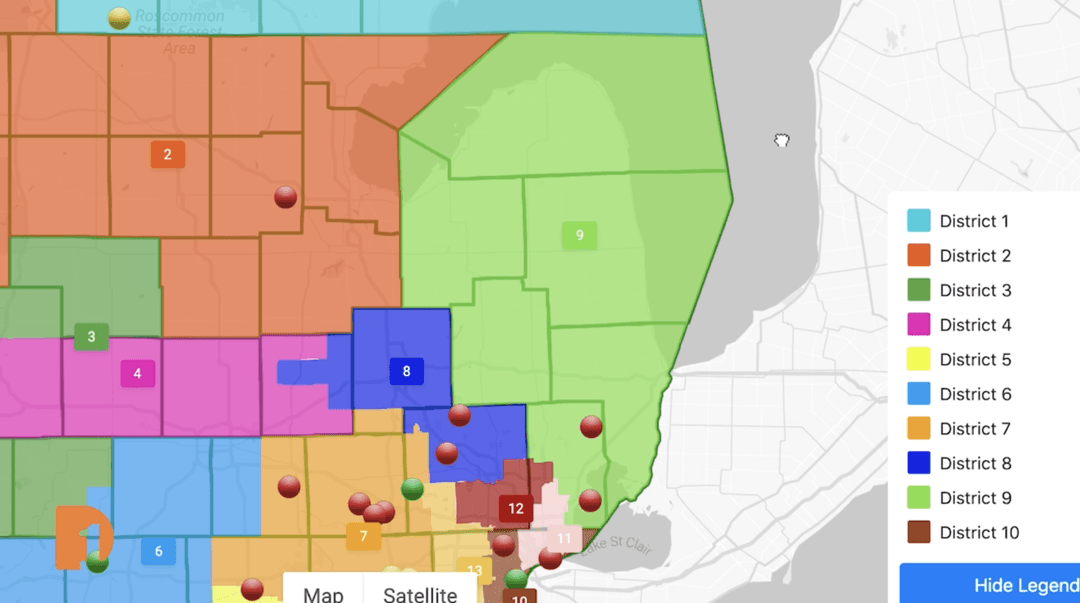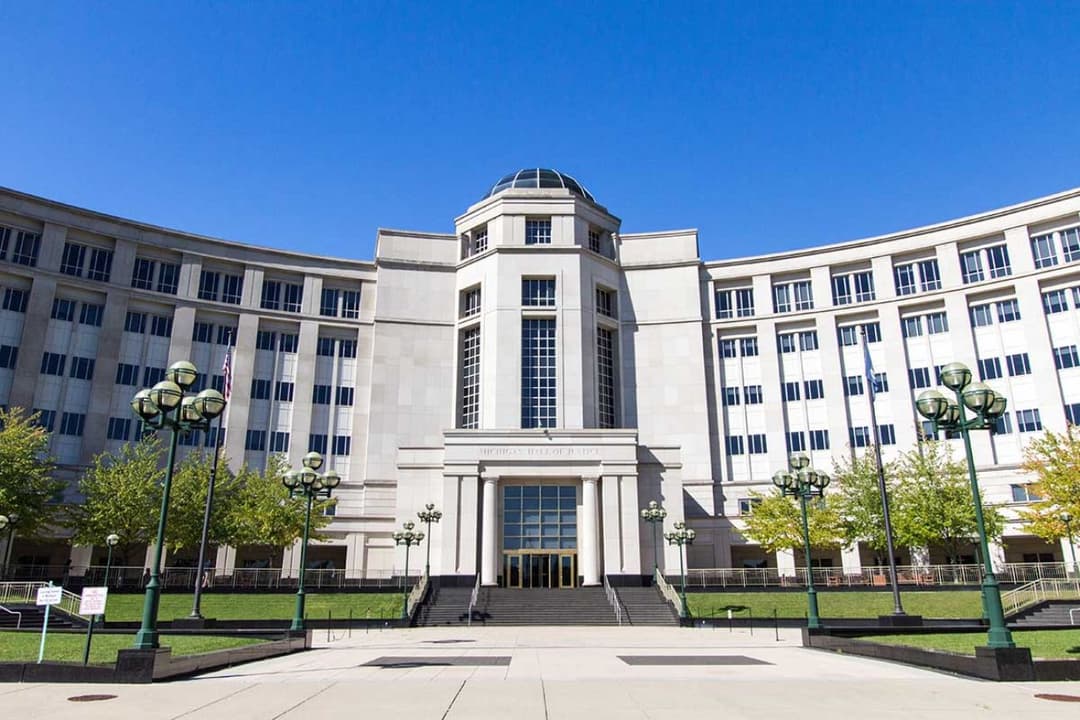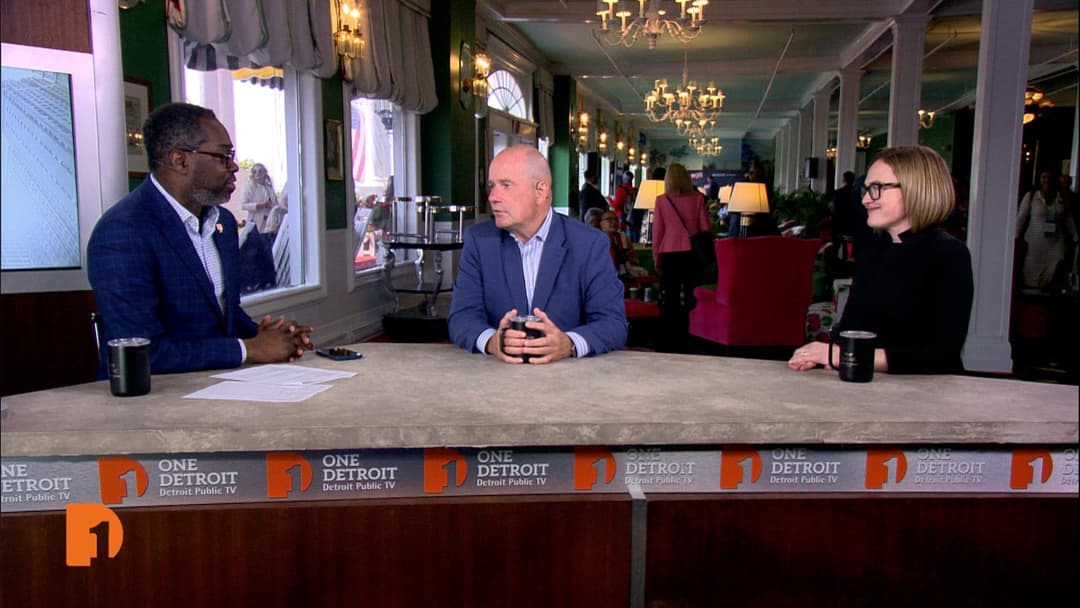
‘Communities of Interest’ and Michigan’s New Redistricting Process
Apr 20, 2021
How communities can promote their interests in Michigan’s redistricting: Lessons learned
Michigan’s redistricting process is the single most important political event in the state. Its outcome will affect Michigan policy and politics for the next decade. This webinar will address the process that the Michigan Independent Citizens Redistricting Commission (MICRC) is using to draw district maps for the U.S. Congress and both houses of the Michigan Legislature.
The webinar will include an analysis of the testimony the Commission has received from citizens and Communities of Interest about their mapping preferences, a discussion of the timeline for creating final maps, and useful tips for the public and Communities of Interest as they prepare to offer comments to the Commission about the new district maps this fall. The Commission currently plans to begin the second and final round of public hearings in early October.
Sergio Martínez-Beltrán of Bridge Michigan will moderate a panel that includes Moon Duchin of Tufts University’s MGGG Redistricting Lab, who designed the Commission’s public input portal, Bob Chunn of Next Vote which helps communities draw maps, and Hayg Oshagan who directs New Michigan Media, a network of ethnic and minority media. The Executive Director of the MICRC, Sue Hammersmith, will also speak about public input and the mapping process.
This is the third webinar in a series sponsored by the Center for Local, State and Urban Policy (CLOSUP) at the University of Michigan’s Ford School of Public Policy, Voters Not Politicians (VNP), and Michigan State University’s Institute for Public Policy and Social Research (IPPSR).
Sponsored by the Center for Local, State and Urban Policy (CLOSUP) at the University of Michigan’s Ford School of Public Policy and Voters Not Politicians (VNP), along with Michigan State University’s Institute for Public Policy and Social Research (IPPSR).
Co-sponsored by the Gerald R. Ford School of Public Policy, Bridge Michigan, League of Women Voters of Michigan, University of Michigan’s Program in Practical Policy Engagement, and Detroit Public Television.
The purpose of these webinars is to educate and engage the public in Michigan’s redistricting process. There will be time for questions from the public after brief presentations from the panelists. Please also submit your questions in advance when you register for the webinar here.
Michigan redistricting: Making public hearings fair and effective
In 2018 Michigan voters approved a Constitutional amendment to change how redistricting is done in the state, removing the process from the purview of the state legislature and placing it in the hands of a new Michigan Independent Citizens Redistricting Commission (MICRC). The amendment also prescribes priorities the MICRC must address when drawing new district maps, placing the concept of “communities of interest” (COIs) near the top of the list.
At this webinar, MICRC Commissioners Douglas Clark, Rebbeca Szetela and Dustin Witjes will introduce themselves and discuss plans for their first public hearings, which will take place all over the state in May and June. Then, a panel of redistricting experts from a variety of states will share key lessons for fair and effective public hearings, and will offer tips to Michigan’s Commissioners, COIs, and the public as they prepare for the hearings.
Presenters
Douglas Clark is a Commissioner on the Michigan Independent Citizens Redistricting Commission (MICRC). As a retired operations and development manager, Commissioner Douglas J. Clark, Jr. affiliates as a Republican on the MICRC. During his career, Commissioner Clark worked for large, multinational companies and served in the U.S. Army as a Captain in various armor and air cavalry units. In applying to serve on the MICRC, Commissioner Clark, resident of Rochester Hills for 43 years, believes that it is important to ensure a fair and impartial redistricting process. Being processoriented, Commissioner Clark recognizes the role that process plays in determining independent maps for Michigan Congressional, House and Senate districts.
Kathay Feng is Common Cause’s National Redistricting Director. Feng has led Common Cause’s work to challenge partisan and incumbent gerrymandering, through litigation, state-based organizing around ballot initiatives and legislation and creating new platforms for community-based redistricting. As Executive Director of California Common Cause, she championed and won election and redistricting reforms, stronger government sunshine and accountability laws, campaign finance reforms, stronger net neutrality laws, and the voting rights of traditionally disenfranchised communities. Kathay is the architect of California’s Citizens Redistricting Commission, leading the multi-year effort to study, write, and pass the two initiatives, Propositions 11 and 20, that created the commission and new community-focused process. She also led efforts that secured passage of California laws bringing online voter registration and same day registration (called conditional voter registration) to the state.
Colleen Mathis is former Chair of Arizona’s Independent Redistricting Commission (2011-2021). As a registered Independent from Tucson, Arizona, Colleen Coyle Mathis volunteered to serve and was unanimously chosen as chair of the Arizona Independent Redistricting Commission by the four appointed commissioners in 2011. Her position ended in January 2021 when the new chair was appointed. Colleen has shared her experience in other states seeking to adopt independent redistricting as well as at numerous conferences and forums. Colleen earned a master’s degree in environmental management from Yale University and a bachelor’s degree in economics from the University of Illinois. She is a demand consultant for Large Mining Trucks at Caterpillar, an affiliate of the Institute for Quantitative Social Science at Harvard University and principal at Willet Creek Consulting, specializing in nonprofit management, communications and business development.
Andre Parvenu is State Commissioner at California State Citizen’s Redistricting Commission. Andre Parvenu is a multi-disciplinary professional with a strong background in Planning, Public Affairs, and Community Relations. Mr. Parvenu has gained professional experience as a Geographer, Urban Planner, Community Outreach Specialist, and former City Planner and Zoning Analyst with the Los Angeles Department of City Planning. He presently serves as a California State Redistricting Commissioner, and is a member of the Technical Advisory and Community Outreach Committees. He also serves as a volunteer Planning Consultant/Advisor for several Neighborhood Councils in the City of Los Angeles. Prior experiences have included Project Manager, Community Relations Manager, and Senior Communications Officer for the Los Angeles County Metropolitan Transportation Authority (Metro); and Transportation Planning Manager for the Los Angeles Department of Transportation (LADOT) Community DASH program. Mr. Parvenu has also worked as a Community Partnership Specialist with the United States Census Bureau (Department of Commerce), a Crisis Relocation Planner with the Federal Emergency Management Agency (FEMA), and as a Migration Specialist with the United Nations High Commissioner for Refugees (UNHCR) in Central America, in association with the Belize Ministry of Home Affairs. Mr. Parvenu received a Master of Science Degree in Geography from the University of Wisconsin-Madison, and has completed undergraduate coursework in geography, cartography, and urban studies at Morgan State University in Baltimore, Maryland; in addition to architectural and civil engineering coursework at Howard University in Washington, D.C.
Rebecca Szetela is a Commissioner on the Michigan Independent Citizens Redistricting Commission (MICRC). As a lawyer, Commissioner Rebecca Szetela affiliates as an Independent on the MICRC. She also serves as the MICRC Vice Chairperson. In applying to serve on the MICRC, Commissioner Szetela believes that Michigan citizens from across the political spectrum can cooperatively create balanced legislative maps that ensure the fair representative of all Michigan voters in our election. Hailing from Wayne County for more than 45 years, Commissioner Szetela will also apply her experience as a daughter, wife, and mother of four children.
Nancy Wang is the executive director and a founding member of Voters Not Politicians, the grassroots group that led the successful 2018 ballot initiative campaign to amend the Michigan constitution to put voters, not politicians, in charge of redistricting in Michigan. In the 2020 election cycle, VNP launched the VoteSafe campaign to protect public health and the integrity of our elections during the COVID-19 pandemic. Through the VoteSafe program, VNP volunteer teams have helped to expand voting access for over 800,000 Michigan voters in 17 cities and townships, and VNP educated voters statewide on their safe voting options. Nancy is an attorney and received her bachelor’s degree in environmental engineering from the University of Michigan and her law degree from the University of Michigan Law School.
Dustin Witjes is a Commissioner on the Michigan Independent Citizens Redistricting Commission (MICRC). As a payroll specialist from Ypsilanti, Commissioner Dustin Witjes affiliates as a Democrat on the MICRC. In applying to serve on the MICRC, Commissioner Witjes desires to be a part of the flagship redistricting commission for our State. He wants to ensure that the people have a voice in voting and fairness to the next generation of voters who will turn 18 years old during the next 10 years without any gerrymandering by politicians for their voices to be heard.
Moderator:
Matt Grossmann is Director of the Institute for Public Policy and Social Research and Professor of Political Science at Michigan State University. His next book, Red State Blues: How the Conservative Revolution Stalled in the States, is forthcoming from Cambridge University Press in October 2019. Grossmann is also co-author of Asymmetric Politics: Ideological Republicans and Group Interest Democrats, published by Oxford University Press in 2016 and winner of the Leon Epstein Outstanding Book Award from the American Political Science Association. His previous books include Artists of the Possible: Governing Networks and American Policy Change Since 1945, published by Oxford University Press in 2014 and The Not-So-Special Interests: Interest Groups, Public Representation and American Governance, published by Stanford University Press in 2012. He is co-author of Campaigns & Elections, the leading elections textbook from W.W. Norton. Grossmann serves as a Senior Fellow at the Niskanen Center in Washington, DC, host of The Science of Politics Podcast and a regular contributor at FiveThirtyEight. He has published op-eds in The New York Times and The Washington Post and academic articles in nineteen social science journals. Under Grossmann’s leadership since January 2016, IPPSR added more than 60 affiliated faculty members, built a student Policy Fellows Program while expanding Public Policy Forums, public outreach and leadership training. He also created a policy-relevant research search engine, the Correlates of State Policy online database, and an online survey panel of political insiders.
For more information contact [email protected] or call 734-647-4091
The next big thing: Redistricting in Michigan and the role of communities of interest
In 2018 Michigan voters approved a Constitutional amendment to change how redistricting is done in the state, removing the process from the purview of the state legislature and placing it in the hands of the new Michigan Independent Citizens Redistricting Commission (MICRC). The amendment also prescribes priorities the MICRC must address when drawing new district maps, placing the concept of “communities of interest” (COIs) near the top of the list.
While COIs have been a part of redistricting in other states, this is a new concept in Michigan, and is not yet widely understood. This webinar will help educate stakeholders about COIs: what they are, the role they will play in Michigan’s new redistricting process, and how they can strategize and engage effectively in that process.
Presenters
John R. Chamberlin is a professor emeritus of political science and public policy at the Gerald R. Ford School of Public Policy. His research interests include ethics and public policy, professional ethics, and methods of election and representation. He taught the core course “Values, Ethics, and Public Policy” at the Ford School. He was the founding director of the Ford School’s BA in Public Policy program from 2007-2011 and the director of U-M’s Center for Ethics in Public Life from 2008-2011. In 2019-20 he directed a student research project at CLOSUP that focused on communities of interest in Michigan’s new redistricting system. John has a BS in industrial engineering from Lehigh University and a PhD in decision sciences from the Graduate School of Business at Stanford University.
Connie Cook has been an active volunteer with Voters Not Politicians (VNP) since 2017. She currently serves as Co-Chair of the Community Mapping Project as well as Special Counsel to the Executive Director of VNP. Connie recently retired from the University of Michigan where she served as Associate Vice Provost, Executive Director of the Center for Research on Learning and Teaching, and Clinical Professor Emerita in the Center for the Study of Higher and Postsecondary Education. Connie’s degrees are all in Political Science: a B.A. from Barnard College, an M.A. from Penn State University, and a Ph.D. from Boston University. She is the author of two books on interest groups and political advocacy.
Andy Helmboldt was born in a small rural town outside of Grand Rapids and grew up in a middle-class white family. Both of his parents were teachers in a nearby town’s high school, where his father was also the wrestling coach. Andy attended Central Michigan University where he earned a teaching degree. After graduation he found a job teaching in Battle Creek and eventually left education to go into business with a friend. He began volunteering with community organizations and in 2011 ran for at-large city commissioner. He won three terms before deciding to step down to pursue other political organizing work, equity coaching, and writing.
Rebeka Islam is Executive Director of Asian and Pacific Islander American Vote. She emigrated from Bangladesh to United States with her family when she was 5 years old. After moving to the US, she and her family settled down in Hamtramck a tiny city located on the outskirts of Detroit. Growing up in a community that is consisted mostly of immigrants, Rebeka experienced first-hand how lack of opportunities and lack of awareness coupled with apathetic attitude from leaders was leaving her community behind. That experience helped her grow a strong desire to involve herself in community service, so that she can help bring positive changes in communities of immigrants, and minorities. Rebeka attended schools in Detroit for her early educations, and completed her undergraduate studies from Wayne State University. She has previously worked for the Michigan Roundtable for Diversity and Inclusion, Michigan State Housing Development Authority, and Skillman Foundation. For the past decade Rebeka has worked with Asian Pacific Islander American Vote MI (APIA VOTE MI), in varying capacities from youth intern to serving as current Executive Director.
Molly Kalb is a senior pursuing a BA at the Gerald R. Ford School of Public Policy at University of Michigan with dual minors in International Studies and French. With her degree in policy, as well as one day in law, Molly plans to concentrate on immigration and education reform across the country. After graduating this summer, Molly hopes to continue her policy research in D.C.
Mariam Sayeed is pursuing a Master of Public Policy degree at the Ford School, class of 2021. Mariam is originally from Chicago, but has worked in many cities including Pittsburgh exploring the work of policy through community development and civic engagement. She joined the Ford school to pursue a concentration in social policy through international development, immigration reform, and health policy. She looks to continue her career in policy in DC after graduating this upcoming summer from the Ford school.
Sandra Sorini Elser is a volunteer for Voters Not Politicians. She is a 1983 graduate of the University of Michigan School of Law. She has practiced law in the Southeast Michigan area for over 35 years. She was the Ann Arbor Township general counsel for 30 years. In addition to public law, her practice focuses on the area of real estate development and land preservation. After retiring from her law firm in January 2020, Ms. Sorini Elser has been an active volunteer in Voters Not Politicians, focusing on the important work of the new Independent Citizens Redistricting Commission. She also is a volunteer attorney with Legacy Land Conservancy, and Michigan Indian Legal Services. She lives in Ann Arbor with her husband Doug, has two sons, four grandchildren, two step-daughters, and two step-granddaughters.
Nancy Wang is the executive director and a founding member of Voters Not Politicians, the grassroots group that led the successful 2018 ballot initiative campaign to amend the Michigan constitution to put voters, not politicians, in charge of redistricting in Michigan. In the 2020 election cycle, VNP launched the VoteSafe campaign to protect public health and the integrity of our elections during the COVID-19 pandemic. Through the VoteSafe program, VNP volunteer teams have helped to expand voting access for over 800,000 Michigan voters in 17 cities and townships, and VNP educated voters statewide on their safe voting options. Nancy is an attorney and received her bachelor’s degree in environmental engineering from the University of Michigan and her law degree from the University of Michigan Law School.
Kermit Williams is Executive Director of Oakland Forward whose goal is to remove economic, racial, and social barriers to opportunities with a focus on people of color in Oakland County. Having become engaged in social justice issues while still a teenager, leading a life of service is important to him. His dedication to civic engagement has led him to public office where he currently serves as Pontiac City Council President.
The event is co-sponsored by the Center for Local, State, and Urban Policy (CLOSUP), the Program in Practical Policy Engagement, Detroit PBS, the Gerald R. Ford School of Public Policy, and Voters Not Politicians, the citizen-led grassroots organization that spearheaded the effort to pass the amendment.
For more information contact [email protected] or call 734-647-4091
What Are “Communities of Interest” and How Will They Affect Redistricting in Michigan?
Detroit Public TV and the U-M Ford School of Public Policy offered live coverage of a panel discussion of the new process for drawing election maps that could change the face of politics in the state
Last November, the voters of Michigan passed Proposal 2, which amended the Michigan Constitution to place legislative and congressional redistricting in the hands of a 13-member Independent Citizens Redistricting Commission.
The amendment requires that the Commission be made up of “buckets” of four Democrat voters, four Republican voters and five voters who affiliate with neither of those parties.
Detroit Public TV and the Ford School of Public Policy at the University of Michigan provided live coverage of the panel on a key component of that commission – “Communities of Interest” (COIs). The event was being organized by Center for Local, State, and Urban Policy (CLOSUP) at the Ford School, as part of its Policy Talks lecture series.
The redistricting amendment requires the Commission to draw Michigan’s election district maps in a fair and transparent way using public input. Commission-drawn maps must meet strict, prioritized criteria listed in the amendment.
COIs are high on the list of priorities in drawing new districts, after equal population, compliance with the Voting Rights Act and contiguity. However, COIs are a new concept for Michigan redistricting and are defined broadly in the amendment.
A panel of experts shared how COIs factor into the redistricting process, and how citizens can be involved in helping the Commission incorporate COIs in Michigan’s next set of election district maps.
Panelists:
• Jocelyn Benson, Michigan Secretary of State
• Connie Malloy, Chair, 2010 California Citizens Redistricting Commission
• Chris Lamar, Legal Counsel for Redistricting with the Campaign Legal Center
• Christopher Thomas, former Director of Elections for the State of Michigan
• Nancy Wang, Voters Not Politicians, Executive Director, who will moderate the discussion
Among the topics they discussed:
• What are communities of interest (COIs)?
• How are they defined (some examples from Michigan and other states)?
• Where do they factor into the redistricting process?
• Why is it important for district maps to respect community boundaries?
• What is the actual process for drawing lines around communities?
• What to do with overlapping communities of interest?
The panel took place in the Annenberg Auditorium of the Ford School of Public Policy.
More information can be found here.
This event is sponsored by the Center for Local, State, and Urban Policy (CLOSUP) and the Gerald R. Ford School of Public Policy.
Stay Connected
Subscribe to One Detroit’s YouTube Channel.
Catch the daily conversations on our website, Facebook, Twitter, and Instagram @detroitperforms
Related Posts
Leave a Reply
Your email address will not be published. Required fields are marked*
